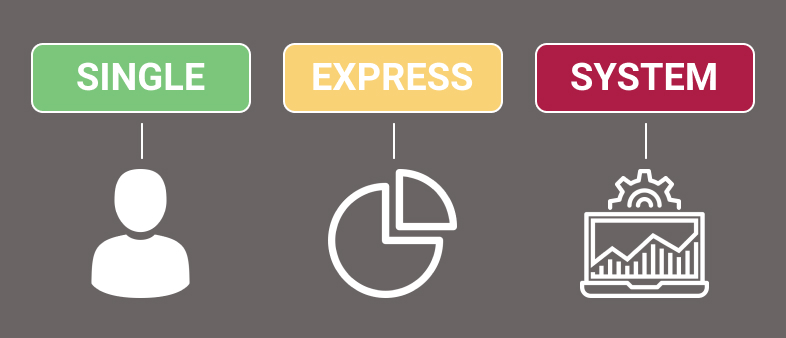Types of Sports Bets
It is possible to make selections which can be combined with each other, thus forming different types of bets. They differ from others by the number of possible outcomes and by the way they are calculated. Ordinary (single), express (accumulator) and system are the most common types of bets.
We will tell you more about each of them. Including what they are and what rules the bookmakers usually set for them.

Ordinary (or Single)
This is the most common type of bet among sports bettors. This is simply a single bet, placed on the predicted outcome of only one event. The player selects an event on the coupon with certain odds, makes a bet and, if the choice is successful, gets their winnings. The winnings will be equal to the amount multiplied by the odds.
An example of an ordinary calculation:
Take for example, in a game between the New England Patriots and the Miami Dolphins you decide to bet 1000 Ksh on a Patriots win. The bookmaker has offered odds of decimal 2.0. If the Patriots end up winning the game, you will receive a payout of 2000 Ksh, as the amount you bet is multiplied by the odds (1000 x 2 = 2000).
If the Dolphins win, then your bet is lost and that is that. The advantage of this type of bet is considered to be its simplicity and relative reliability because unlike other types of bets, it is only necessary to predict one outcome in a single match. The disadvantage of the ordinary is the use of lower odds compared to the express or system bets.
Express (Accumulator)
The “express” or “accumulator” bet is a combination of single bets: it includes several outcomes predicted by the player (there may be two or more). Punters like express bets primarily for the large potential winnings, as the odds of all outcomes, multiply and quickly become very high...
An example of an accumulators calculation
Let’s say, for your bet, you predict the outcome of three soccer matches:
- Barcelona win vs Real Madrid, odds of 2;
- Arsenal win vs Tottenham with odds of 2;
- Manchester City to beat Southampton with odds of 2.
The total odds of such a bet would be 8.0 (2 x 2 x 2 = 8). If every event in this accumulator bet is successful, you will get a win at odds of eight (the size of the bet will be multiplied by eight). However, if even one outcome loses, the entire bet will be lost.
Obviously, with each event added to the accumulator, the overall odds are increased, but the likelihood that all selected events will be successful is reduced.
A lot of novice players create these bets from so-called “bankers”, that is, from a large number of events with very low odds: it seems almost certain that they will all win, and the overall odds are quite enticing.
However, low odds are not a guarantee of winning and clear favourites must lose as well sometimes. And more often than not this will signify a novice bettor to a bookmaker, someone who has not yet learned a full analysis of the events. Accordingly, compiling huge accumulators in the vast majority of cases is a quick path to numerous and regular loses.
Accumulator bets can be used in a variety of strategies. For example, one of the rather popular strategies in betting on soccer is called “27 Express”. It is designed to make an accumulator from bets on exact scores in several matches.
It is believed that 27 combinations cover all of the most likely variants of actual scores, and even if 26 should lose with only one winning, that one will justify the entire outlay as the odds on the exact score bet are quite high separately and even more so in the express.
Please note that bookmakers can impose a limit on the number of possible events in the accumulator or limit the maximum possible winnings ratio. You are generally not allowed to include interdependent events.
What’s better: Singles or Accumulators? There is no definite answer to this question. Of course, a larger accumulator has a higher ratio, and if you do not make a mistake with any of your predicted outcomes, the winnings will also be much larger than the same outcomes in a single bet, or separately.
However, experienced players in most cases will prefer the Singles approach.
System Bets
What does a system bet look like? This type of bet may appeal to those who are worried that one of the events in the accumulator may “let them down” and because of this, they will lose the entire lot. A system bet is a combination of accumulators of a given size from a predetermined number of events. Each combination in the system is calculated as a separate accumulator.
You bet on a few events included in the accumulator and specify the dimension of the system (for example, play 2 out of 3, 3 out of 4, etc.). If all of the events you chose win, you will win with multiplied (by special formula) odds. The overall odds here are much lower than in the standard accumulator. However, if one or more bets lose, you still have the chance to stay in the game and return part of the bet.
Depending on the type of system and the number of events that make up the bet, the number of combinations required will change.






